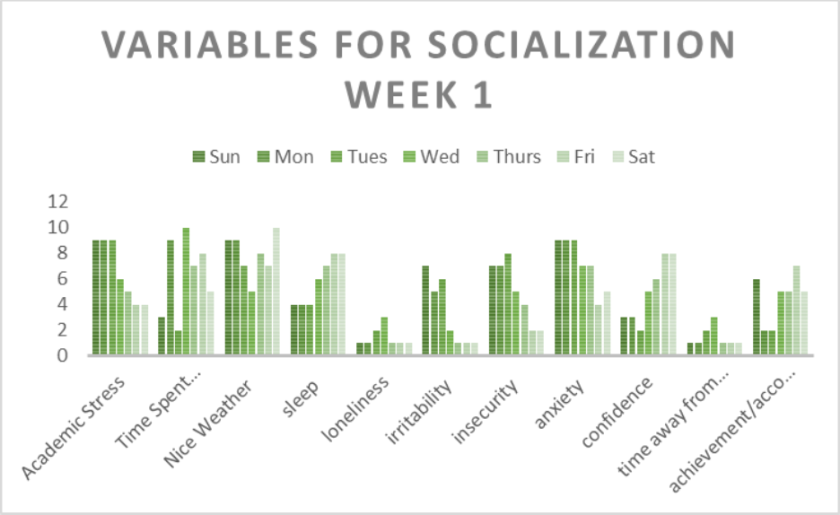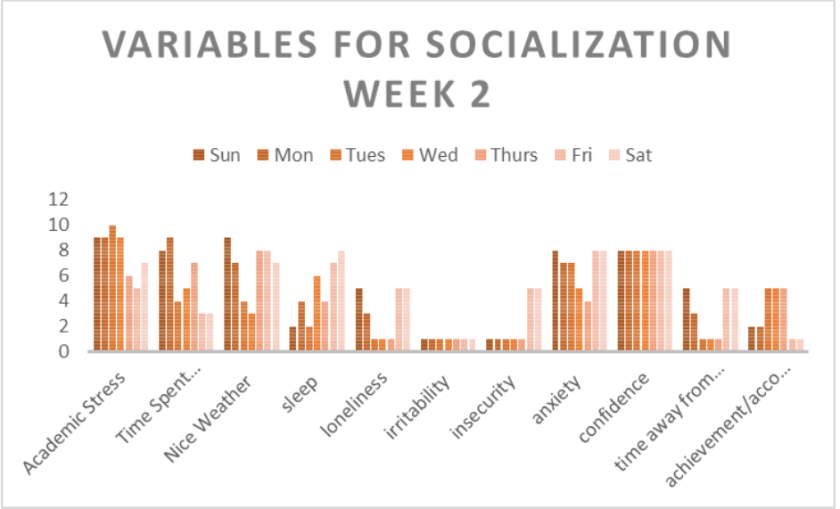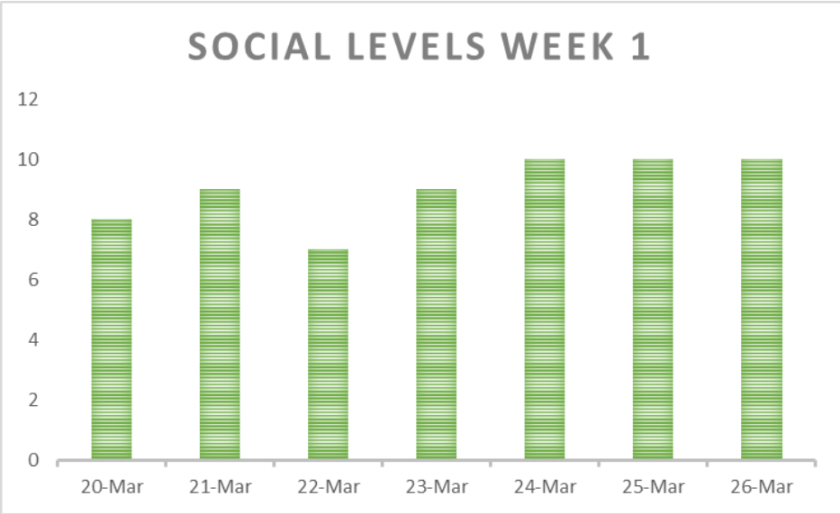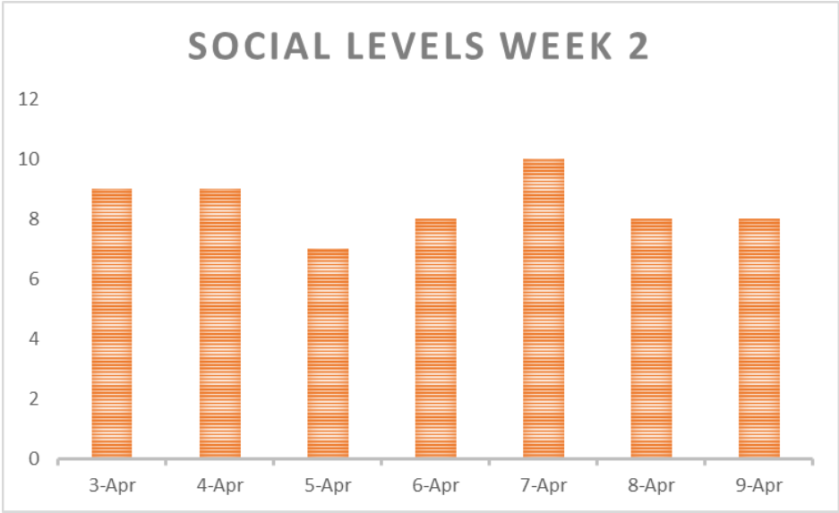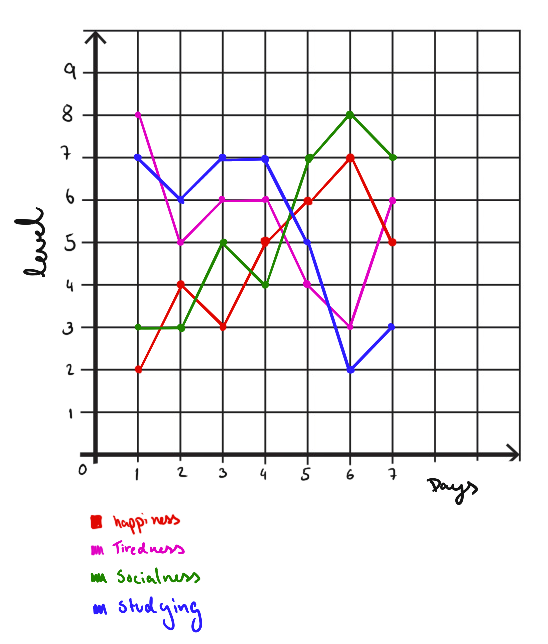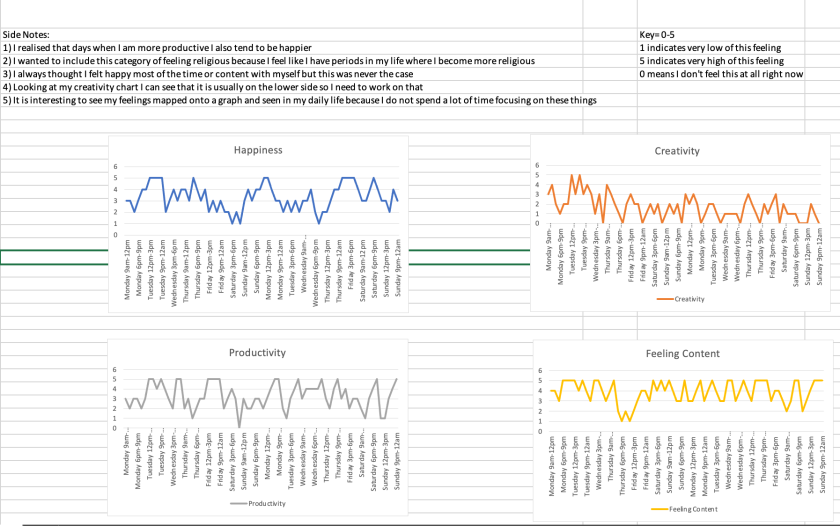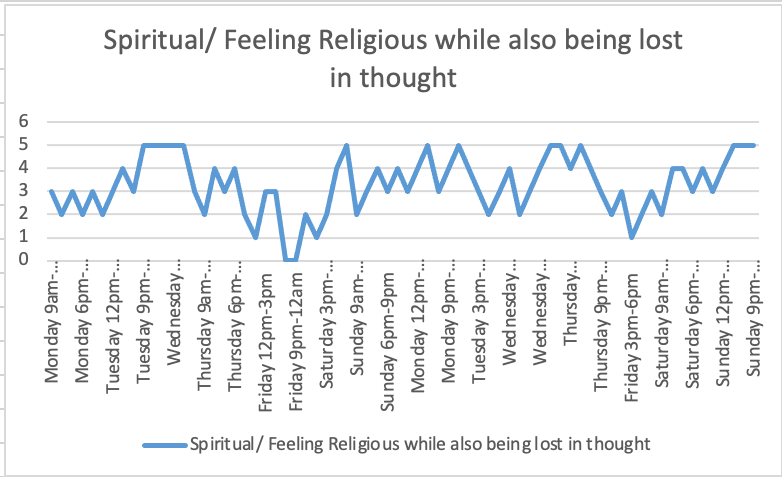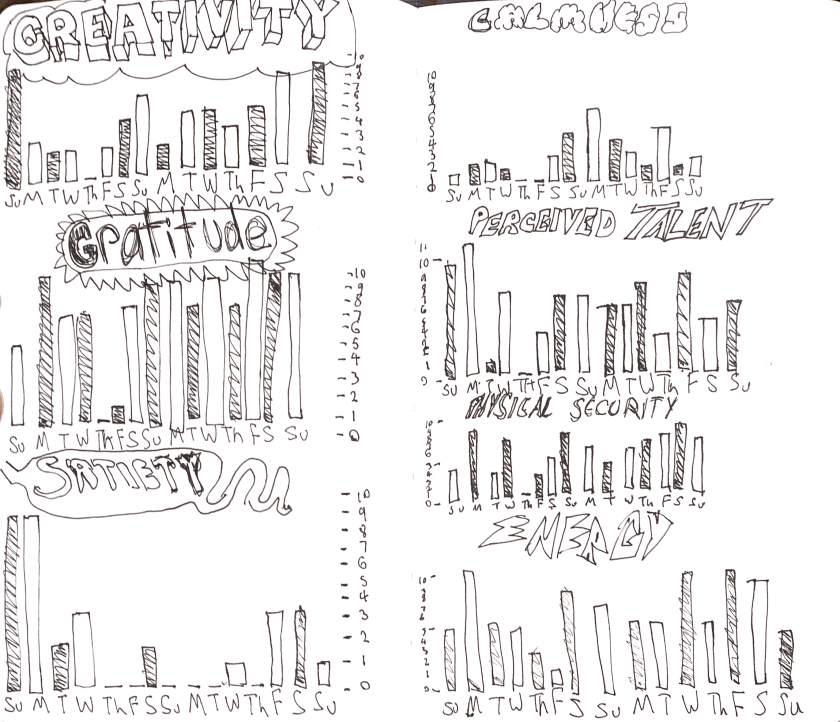Sketch 8: Data viz from everyday life
How Much Happy Am I?
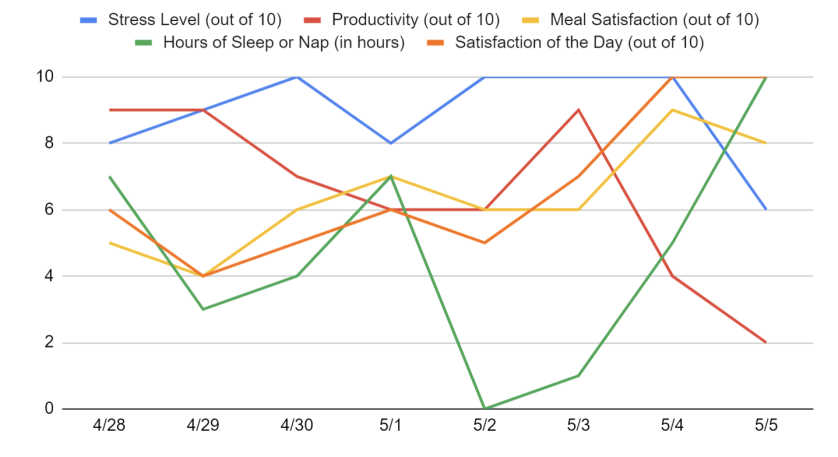
For Sketch 8, I wanted to know my happiness for each day, which I think would be higher if the day becomes closer to my ideal schedule. I gathered my data about stress level, productivity, meal satisfaction, sleeping hours, and satisfaction of the day for 8 days. For Stress Level, Productivity, Meal Satisfaction, and Satisfaction of the Day, I qualitatively evaluated it myself out of 10 at the end of the day, and for Hours of Sleep or Nap, I quantitatively recorded hours that I slept or napped as soon as I woke up.
I believed that my happiness, regarding how close it is to my ideal schedule, consisted of low and stable stress level, somewhat productivity, high meal satisfaction, and moderate sleep and nap. However, I think the results were quite unexpected.
The first thing that was easily notable and expected was the high stress level in general. I regard it was due to the final period I was in. In the pretext, the stress level was significantly inversely proportional to the hours of sleep I took, and I believe it does reinforce what I thought previously. I did feel much stress when my 8-hours weren’t assured. However, what surprised me the most was that the satisfaction of the day did not explain the stress level, as much I thought it would. In the days when stress level recorded the highest, 10, the satisfaction of the day rose. My conjecture is that the prospect of the vacation and that the assignments and exams are almost over have affected the satisfaction of each day disregarding the stress level of that moment. I think it could be understood as having clear motivation may increase the satisfaction of the day even in times when there is too much work to do. Also, I noticed the correlation between meal satisfaction and satisfaction of the overall day. I did not know that meal was so important to my happiness.
I was able to learn impressive new facts and suspected correlations between my variables. These data are important to me as I would experience stress throughout my life. However, as I noticed factors such as hopeful prospects (motivation) and meal satisfaction can ‘make my day’ that may boost my happiness even in stressful times, I believe I can use relevant methods to live healthier satisfactory days.

